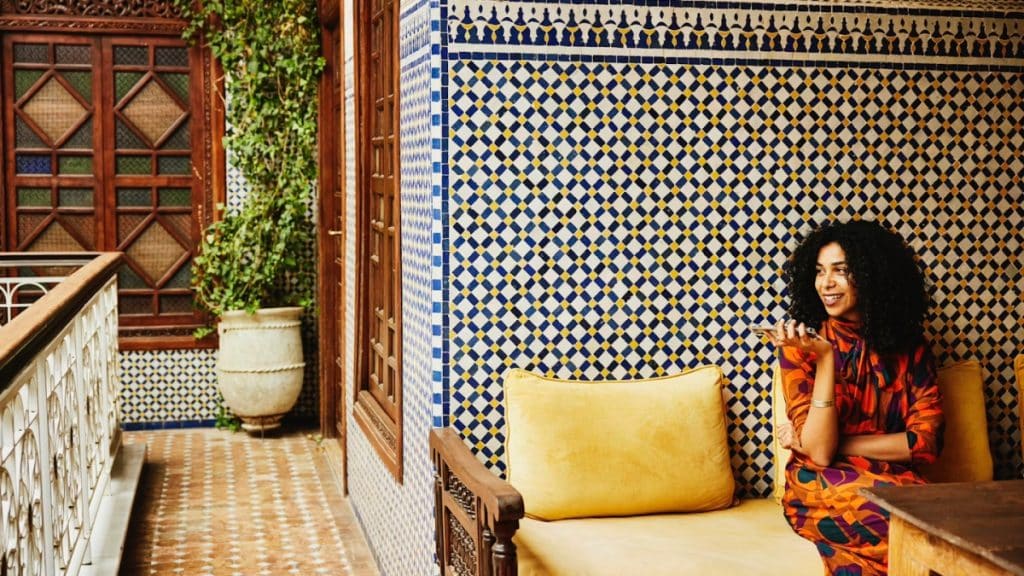Morocco, with its unique blend of historical tradition and rapid modernization, is becoming an increasingly popular destination for business travelers from around the globe. Whether you’re gearing up for meetings in Marrakech, a conference in Casablanca, or exploring investment opportunities in Rabat, understanding the ins and outs of Moroccan business travel can significantly enhance your experience. This guide is structured to offer you five essential insights that are fundamental for any professional stepping into the Moroccan business arena. Here’s what you need to know.
Navigating Cultural Norms and Practices
Understanding and respecting local customs is crucial when traveling to Morocco for business. The country has a rich tapestry of cultural norms that can influence your business interactions. For instance, Moroccans place a high value on courtesy and personal relationships. Initial meetings are often more about building trust and rapport than diving straight into business matters.
It’s customary to engage in small talk, ask about your counterpart’s health and family, and accept the offer of mint tea, which is a sign of hospitality. Dressing conservatively is also recommended, as Morocco is a country with strong Islamic traditions. Men should opt for suits or business attire, while women should dress modestly in clothing that covers the shoulders and knees. Being punctual is appreciated, although you might find that time is treated more flexibly here than in Western countries.
Language Barriers and Communication
While Arabic and Berber are the official languages of Morocco, French serves as the de facto language of business. If you’re not fluent in French, don’t worry—many Moroccan business professionals also speak good English, especially in larger cities and within major companies. However, you may find that learning a few basic phrases in Arabic or French can help you save money on business travel as you might be able to negotiate better rates on local expenses.
This initial effort shows respect for the local culture and can help you foster goodwill. Also, hiring an interpreter or having a bilingual contact can be an invaluable asset during negotiations and meetings. Keep in mind that non-verbal communication is also significant in Morocco. For example, Moroccans may stand closer than what you might be used to and use more hand gestures during conversations.
Securing Your Morocco Business Visa
When planning your business journey to Morocco, securing a Morocco business visa is a pivotal step that demands careful attention. This specific visa is necessary for anyone intending to engage in different business-related activities, including attending meetings, seminars, or conferences.
To obtain this visa, applicants are typically required to provide an invitation letter from a Moroccan company, proof of business status, such as an employer letter or company registration, and confirmation of accommodation. It’s advisable to initiate the overall visa application process through an online service such as iVisa as early as possible to avoid any potential delays. Ensuring that all your paperwork is meticulously prepared reflects professionalism and respect for legal procedures, setting a positive tone for your business interactions in Morocco.
Adapting to the Moroccan Business Etiquette
Success in Morocco can depend heavily on your adaptability to the local business etiquette. Moroccans are known for their warm hospitality and take pride in their interpersonal relationships. In business contexts, it is usual for meetings to start with a handshake, though always wait to see if a hand is extended, especially with members of the opposite sex due to religious sensitivities. During meetings, direct eye contact signifies honesty and should be maintained. However, be aware that business discussions may not follow a straight path; they can be dynamic and fluid, weaving personal anecdotes with business propositions.
Business cards are exchanged frequently and should be presented and received with either the right hand or both hands as a sign of respect. Have one side of your business card translated into French or Arabic to demonstrate cultural sensitivity. When scheduling your meetings, be mindful of prayer times and the Islamic Friday holiday. Also, the holy month of Ramadan can significantly alter business hours, as many professionals fast during daylight hours.
Understanding the Moroccan Economy and Market Trends
Before diving into the Moroccan market, a thorough understanding of its economic landscape is essential. Morocco is known for its diverse economy, with strong sectors in agriculture, phosphate mining, and manufacturing, particularly in textiles. The country is also seeing growth in tourism and renewable energy, making it an attractive hub for international investment.
It’s beneficial to research current market trends and economic policies that could impact your business. For instance, the Moroccan government has been actively encouraging foreign investment by improving infrastructure and simplifying business processes. The introduction of industrial zones and the enhancement of port facilities are aimed at boosting trade and logistics. Being knowledgeable about these developments can provide you with crucial insights into potential business opportunities and partnerships.
